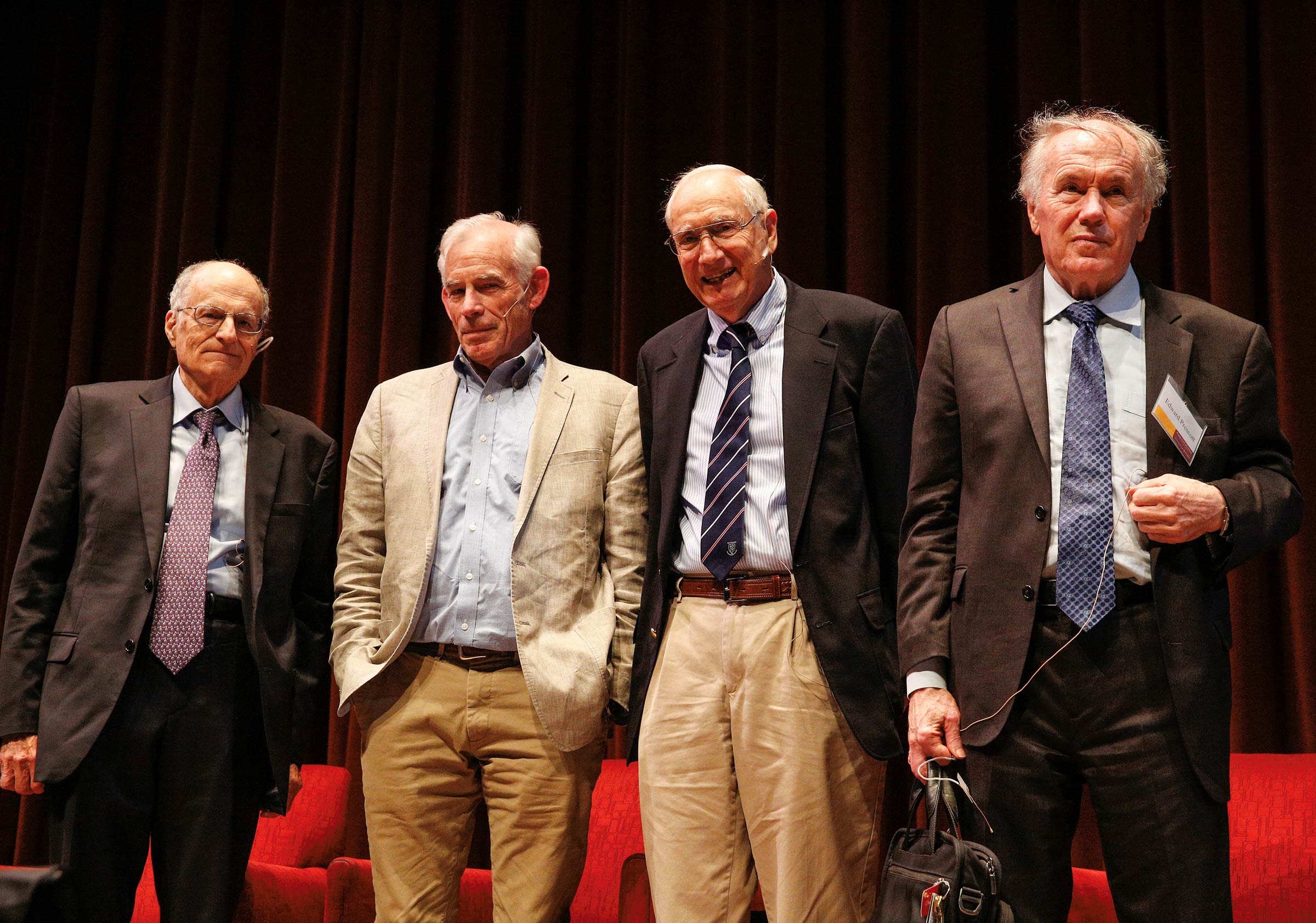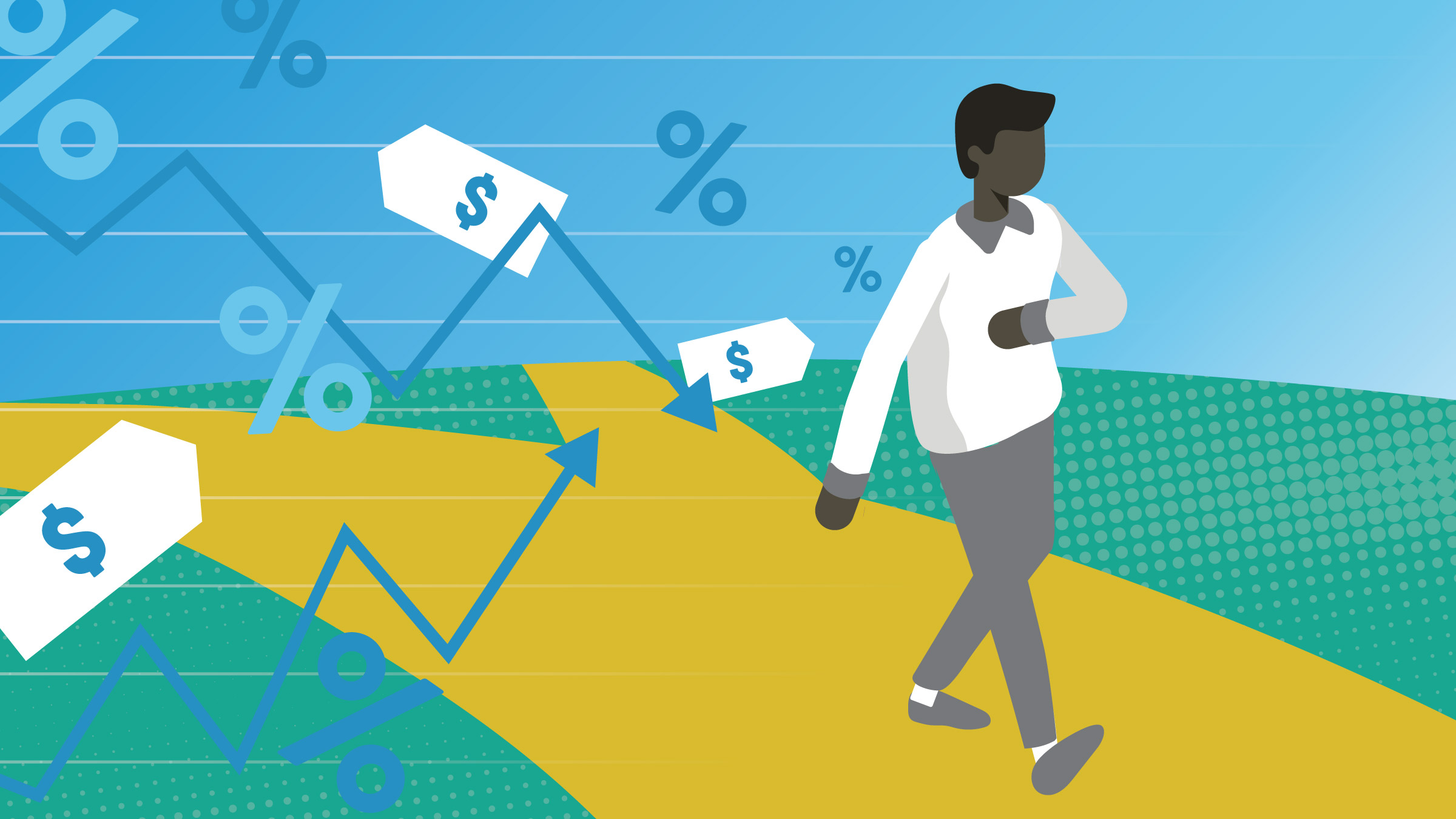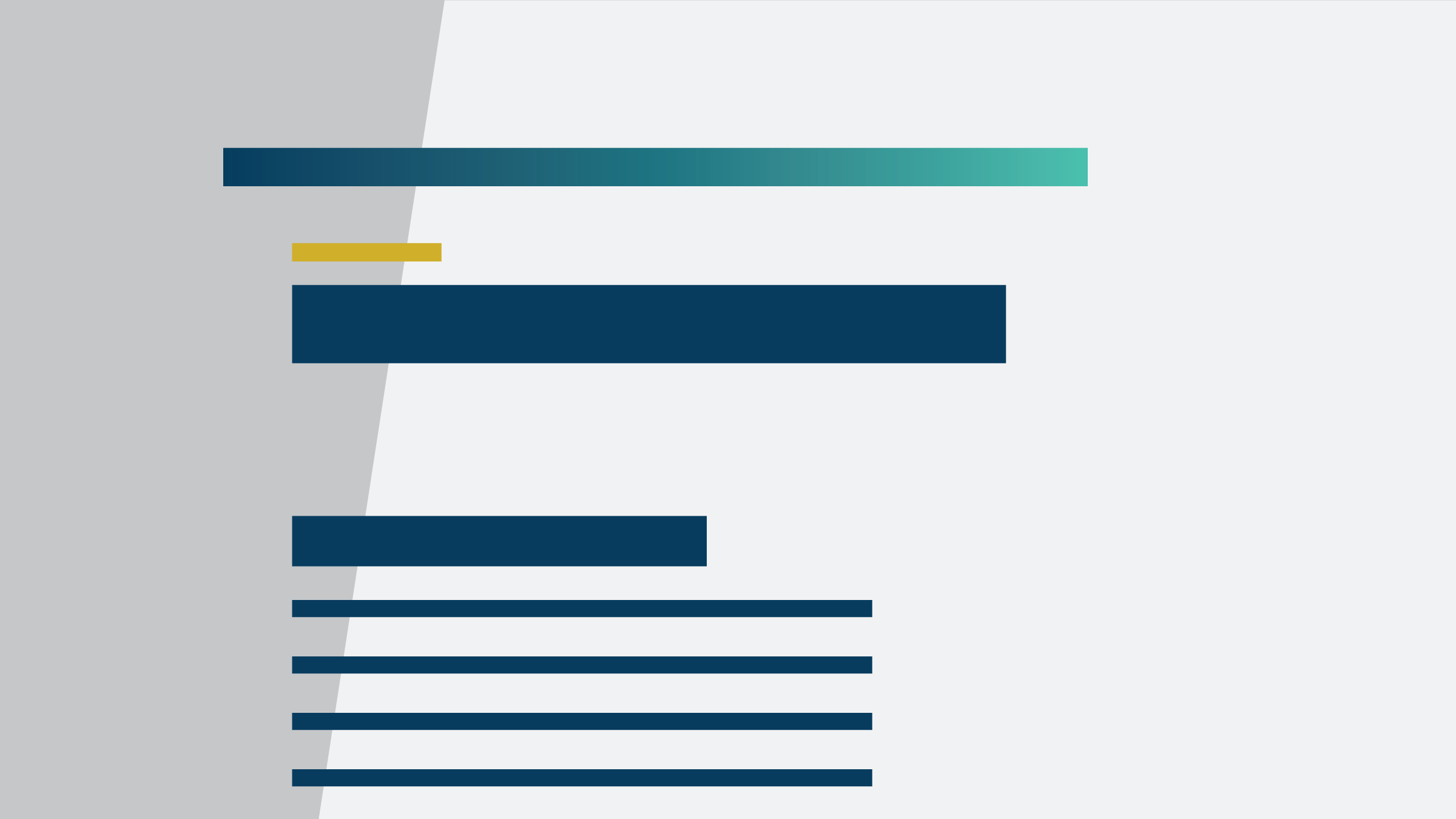Amid the highest inflation in 40 years, and the commitment of the Federal Reserve to bring it down, we are rightly obsessed with expectations.
"Consumers expect inflation to slow down, a big win for the Fed," blared a recent headline from CNBC. Amid starkly rising prices, policymakers are confronting the prospect that expected inflation becomes a self-fulfilling prophecy, as consumers and businesses push up prices and wages to keep from falling behind.
In this environment, the Fed's ability to influence expectations—and maintain the credibility necessary to do so—is essential. The Fed leans heavily on a policy tool known as "forward guidance," a formal term for the practice of carefully choosing its words to shape expectations.
This simple notion can turn complicated, and quickly. For example, if your guidance is effective—if you get the "big win" heralded by CNBC—it triggers a conundrum: Because your statements about what you'll do in the future changed economic conditions right away, the future won't be what you thought when you get there. But changing course could undermine the credibility you'll need for the next time.
In some cases, the best forward guidance is to announce that you'll be giving less forward guidance. "We're going to be making decisions meeting by meeting," said Fed Chair Jerome Powell at the press conference following the most recent meeting of the Federal Open Market Committee (FOMC). "We think it's time to just go to a meeting-by-meeting basis and not provide … the kind of clear guidance that we had provided on the way to neutral."

Policymakers navigating this brain-bending interplay of expectations and policy owe a major debt to a paper that turns 50 years old this year: "Expectations and the neutrality of money" by Robert E. Lucas Jr. The paper—instantly recognizable to economists by the citation-shorthand Lucas (1972)—influenced thinking across the field of macroeconomics (the study of phenomena like inflation, interest rates, and employment at an economy-wide level). Its anniversary makes a timely tentpole for the Minneapolis Fed's 2022 research conference on "Foundations of Monetary Policy."
"It was totally revolutionary," said Minneapolis Fed Senior Research Economist Juan Pablo Nicolini, one of the conference organizers. "Lucas' paper made it transparent that the answer to any question in macroeconomics is very sensitive to the way expectations are formed. These notions completely changed the way we now do macroeconomics."
Modeling the mind—before Lucas, and after
Modern economics runs on mathematical models. Yet these models run, ultimately, on people—legions of hypothetical actors turning the hamster-wheels of commerce. This means any economist building a mathematical model of the economy must reckon with a philosophical question about humanity: Just how smart are we?
From a Wall Street bond trader parsing a Fed announcement to a farmer planting seeds to a warehouse worker steeling herself to push for a raise, we are all planning, prognosticating machines—consciously and subconsciously observing supply, demand, prices, and government policies to place our bets on the future. But economic models have not always given people the credit we deserve.
Well into the 1970s, the invisible actors behind the scenes of macroeconomic models were not terribly bright. People and firms were often presumed to use simple, fixed rules, impervious to changing circumstances. Economists had begun to model how people might learn from the past to inform a decision in the present—"adaptive expectations"—a definite improvement.
What people in models did not do, however, was look forward.
"For many years, when it came to forming expectations of the future, economists abandoned the idea of 'optimizing' behavior," said Alisdair McKay, senior research economist at the Minneapolis Fed. "They just wrote down behavioral types of stories about how people came up with their expectations."
"Our models looked a little bit like models of a physical system," said Minneapolis Fed Monetary Advisor Marco Bassetto. "There were some inputs, some outputs, and the mapping from what you put in, to what's going to happen, was fairly mechanical."
If economic models featured actors who didn't plan and predict, how reliable were the models' insights?
When it arrived 50 years ago, Lucas (1972) marked a turning point. Going forward, models would need to consider the symbiotic relationship between policy actions and forward-looking economic actors. "People understand that there are policymakers making decisions," said Bassetto. "And when they see that policymakers are going to change the framework by which they make decisions, they are going to respond to that."
"The paper is not just an extremely useful theoretical exercise," said Nicolini. "Lucas applied the methodology to the study of the most important macroeconomic problem of the time: the joint behavior of inflation and unemployment. His theory essentially predicted the stagflation that the U.S. experienced during the decade following its publication."
In Lucas (1972), Minneapolis Fed conference organizers Bassetto, McKay, and Nicolini saw the opportunity to celebrate a seminal work in the field, while highlighting new work by leading macroeconomic thinkers still reckoning with its powerful legacy.
Putting expectations into practice
In 1961, economist John Muth published his academic proposal that models should feature firms forming expectations in a "rational" way—not just learning from the past, but using any available signals to forecast the future. While no single market participant carries a crystal ball, "averages of expectations in an industry are more accurate than naïve models," Muth wrote, despite "considerable cross-sectional differences of opinion." In other words, we can trust the best guesses of the crowd, on average, to get awfully close to an accurate prediction.
Muth's call-to-action lay relatively dormant for more than a decade. But among those who cited Muth's paper in this period was his Carnegie Mellon colleague, Lucas—although Lucas says he did not immediately appreciate it for what it was: "a contribution of the most fundamental kind."1
With his 1972 paper, however, Lucas elevated Muth's notion of "rational expectations" to a concept no monetary economist could ignore, applying it within a model economy of booms, busts, and fluctuating prices. Though it took a few years to gain traction, the revolution was underway, inaugurating a stream of related work that brought Lucas the 1995 Nobel Memorial Prize in Economic Sciences for having "rapidly and thoroughly transformed" the study of macroeconomics and economic policy.
"It's really a landmark in terms of methodology, substance, and articulating the modern language that economists use when they discuss things with each other," said Martin Eichenbaum, professor of economics at Northwestern University and co-director of the Center for International Macroeconomics. After Lucas, "we cannot proceed without modeling expectations" and doing it with mathematical rigor.
Eichenbaum recalls his assignment to study Lucas (1972) for a full quarter as a graduate student at the University of Minnesota. "With the kinds of things that were written in [academic] journals at the time, people reasoned in very different ways," Eichenbaum said. "Bob smashed through all of that. … He didn't just do the math—he then explained the intuition for the mortals. [The paper] was proof-of-concept that you could tackle this critical issue."
The assumption of rational expectations is not a literal truth, Eichenbaum said, but a baseline to which alternative theories are forced to respond. "In Bob's context, what rational expectations meant was that people understood the structure, both deterministic and probabilistic, of the economy they were living in. If you were analyzing the behavior of people playing cards, you would say they know the rules of poker, they know how many cards are in the deck, and they know how to count cards."

Consider the modern Wall Street world of algorithms, high-speed trading, and human "quants" parsing data and Fed statements for any advantage. "If you're investing, you understand the probability structure of returns, you understand how other people are going to react to what you're doing," Eichenbaum said. "You might not have complete information. You might get noisy signals. But you basically understand the rules of the game and the probability structure."
Beyond his direct body of work, Lucas altered the field through mentoring, writing, and sometimes sparring with a who's-who of renowned economists, especially the "four horsemen" closely associated with the research partnership between the Minneapolis Fed and University of Minnesota: Thomas Sargent, Christopher Sims, Neil Wallace, and Edward Prescott (who remains a Minneapolis Fed monetary advisor).
Expectations and the power of policy
Lucas himself was among the first to appreciate that economic actors do not operate with perfect foresight. His concluding passage in Lucas (1972) notes that a policy of monetary or fiscal expansion—such as the Fed and Congress routinely employ to boost economic output amid a recession—should "have no real consequences" if people are fully informed and rational (other than a "neutral" increase in the general price level).
Similarly, a contractionary policy under rational expectations should bring down accelerating inflation without real effects on output and employment—a theoretical version of the soft landing policymakers are aiming to achieve in taming the current bout of rising prices.
Yet expansionary and contractionary policies do, in practice, appear to matter. But why? In the context of his original model, Lucas suggests this is because economic signals can be hard to interpret: Are changing prices the result of "real" changes in demand or supply, or just the result of "monetary disturbances" created by policymakers? Many subsequent economists have focused on the role of "sticky" prices that do not adjust immediately to reflect changing expectations. These frictions keep otherwise-rational people from simply seeing through any attempts by policymakers to influence the economy (and, through people’s self-serving reactions, neutralizing those policy actions).
The economics field's enthusiastic embrace of rational expectations "forced economists to think harder about expectations and come up with alternatives," said Massachusetts Institute of Technology economist Iván Werning, a presenter at the Minneapolis Fed conference, writing in an email. "I have in mind the work on learning, inattention, and other biases in expectations, as well as the empirical evidence on expectations. The pendulum has swung back towards the middle, with more and more analyses departing from strict rational expectations, but we are all better for it."
Lucas had posed an essential and enduring question: Where do we, the economic actors, sit along the wide spectrum between ignorance and clairvoyance? The power of policy to affect economic actions and outcomes depends upon it.
"Assuming that there is some degree of rational expectations does not remove the possibility of policy discretion, but just gives you a way to try to parse and understand where you do have power," said Eichenbaum of Northwestern. His contribution to the upcoming Minneapolis Fed research conference embodies the 50-year tradition of economists interrogating and challenging the rational expectations theory. "Fiscal Policy at the Zero Lower Bound without Rational Expectations" (with Northwestern’s Riccardo Bianchi-Vimercati and Joao Guerreiro) considers the relative power of spending and tax policy when people are more or less sophisticated.
"What if we make people just a little less smart, a little less understanding of the economy, having to learn things a little bit?" Eichenbaum said. "We've got a model of expectations, but we're not going to necessarily tie our hands to an orthodox form of rational expectations." One variation the co-authors apply, known as "level k" expectations, borrows from game theory and imagines a hierarchy of more and less savvy actors in the economy. Level k expectations introduce the intriguing possibility that more-sophisticated actors will anticipate and take advantage of the less adept.
The theory of rational expectations is an essential counterpart to other theories that are, themselves, among the foundations of modern economics. These include the life cycle theory of consumption (and the related "permanent income hypothesis"), which holds that rational, forward-looking people save and spend to smooth their consumption over a lifetime. Rational expectations also underpin the much-tested "random walk" and "efficient markets" theories of asset prices, which suggest that the expectations-driven actions of investors cause stock prices to rapidly converge to their long-term value, such that investor attempts to identify undervalued shares are largely pointless.
Other featured papers at the Minneapolis Fed conference highlight how expectations are interwoven through varied elements of monetary policy. Ricardo Lagos of New York University (with Priit Jeenas) explores how monetary policy affects the economy through its impact on stock prices and incentives for investment. Trying to isolate the effects of an unexpected monetary action, they narrow their view to stock market activity in the 30-minute time frame around an FOMC announcement. Northwestern economist Matthew Rognlie and co-authors consider how a change in the value of a country's currency affects economic output, including the role played by consumers' expectations about how long a currency shock will persist (and thus their willingness to substitute away from now-more-expensive imported goods).
Beyond rational expectations?
The conference paper by Werning of MIT flies closest to the monetary hot-topic of the moment: "Expectations and the Rate of Inflation." People's expectations "no doubt matter to some degree," he writes, "but just how direct and powerful is the causal link from inflation expectations to current inflation? Is it long-run or short-run inflation expectations that matters the most?"
By doing calculations across multiple well-known economic models, Werning finds that the connection of expected inflation and actual inflation is likely much less than the "firmly held view" among policymakers that "inflation inevitably follows from the rise in expectations." Short-term expectations matter more than long-term, which he finds largely irrelevant in his analysis. To explain the noisy connection between expectations and inflation, Werning emphasizes the fact that businesses do not reset their prices every day but want them fixed for some length of time. Firms anticipating inflation will raise prices preemptively, overshooting the inflation they actually expect, to leave themselves a cushion on the back end. This sticky price-setting means expectations of inflation do not directly lead to the same amount of actual inflation.
Werning explicitly sets aside rational expectations in his analysis—and, for that matter, any assumption of how expectations are formed—in pursuit of insights that "are useful and portable for any expectation formation hypothesis. ... In a way, my view now is that we also want to look beyond rational expectations," Werning said, while acknowledging his intellectual debt to his former professor, Lucas, and the honor of presenting at a conference honoring his contributions.
"Lucas' work was always tremendously inspiring," Werning said. "As an undergrad I remember reading and rereading his papers constantly. Just mesmerized. I was absolutely taken by the power of the ideas, the style of the analysis, and the ultimate goal of getting to the bottom of things in a more coherent and clear way."
How far macroeconomics should move beyond rational expectations—or whether it has in fact drifted too far from the concept—could provide a source of debate at the upcoming conference. To Minneapolis Fed Monetary Advisor Marco Bassetto, today's monetary policymaking and research are at risk of ignoring an essential argument made by Lucas (1972): that people's economic decisions cannot be manipulated by policies (even if those policies are intended to help them). At least not for long.
"My quarrel with some of the models used for policy analysis is that the adjustment happens far too slowly," said Bassetto. "We have pushed the models so far that essentially this core idea of rational expectations is no longer much active in those models. As we experience the highest inflation rates since the 1970s, keeping Lucas' lessons in mind is imperative not to repeat the experience of that decade."
To Minneapolis Fed Senior Research Economist Alisdair McKay, the enduring insights of Robert Lucas and this early paper remain highly relevant at this moment when economics is a topic for the street corner and supermarket aisle.
"We do believe that agents in the economy, in particular financial markets, are very attuned to all sources of information about what's going on with the economy and with policy," said McKay. "And that really is what Lucas was getting at: The people out there in the economy know what's going on. With everything in the newspaper these days—recession, inflation—people do know what's happening. And their behavior responds in reasonable ways."
Endnotes
1 Lucas will turn 85 in September 2022 and is a professor emeritus of economics at the University of Chicago. Through a representative, he declined comment for this article but conveyed his gratitude to the Minneapolis Fed, conference organizers, and participants.
Jeff Horwich is the senior economics writer for the Minneapolis Fed. He has been an economic journalist with public radio, commissioned examiner for the Consumer Financial Protection Bureau, and director of policy and communications for the Minneapolis Public Housing Authority. He received his master’s degree in applied economics from the University of Minnesota.





